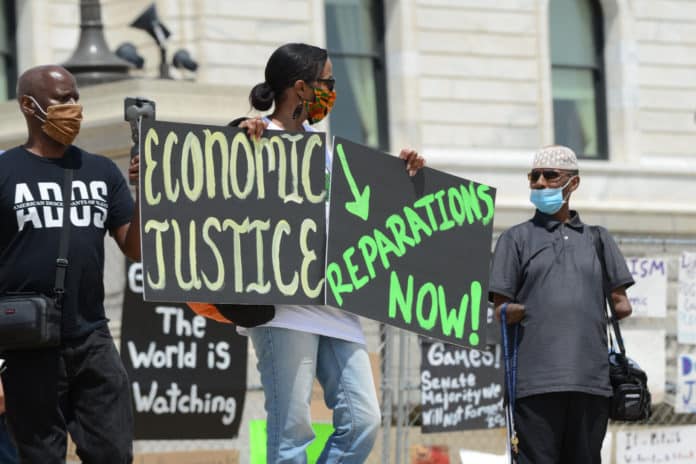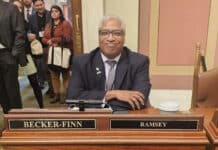
A St. Paul City Council committee will soon be holding community meetings on the establishment of a “permanent standing commission” that aims to create “generational wealth” for descendants of slaves and increase “economic mobility and opportunity” for blacks.
The council’s Legislative Advisory Committee on Reparations, established last June after the idea was approved last January, says it will produce a report on this permanent commission by Friday, June 10, and lay out its recommendations on creating wealth and boosting black economic opportunity the following Wednesday, June 15.
But first, it will hold four community meetings — two virtual, two in person. The virtual meetings will take place on Thursday, April 7, from 5 to 6 p.m. and Friday, April 29, from noon to 1 p.m.
As for the in-person meetings, the first will occur on Thursday, April 14 and the second on April 21, both at 6 p.m. The former will be held at the auditorium of Dayton’s Bluff Recreation Center, whereas the latter will take place in the multipurpose room of the Rondo Library.
Registration is required for the virtual meetings but only “suggested” for the in-person meetings.
A draft proposal on the establishment of the St. Paul Recovery Act Community Reparations Commission outlines information on its terms, qualifications, budget, meetings, powers, duties, and compensation.
“The Saint Paul Recovery Act Community Reparations Commission (hereinafter referred to as the “commission”) serves as an advisory body to the mayor and city council on repairing the damage caused by public and private systemic racism in the City of Saint Paul which resulted in racial disparities in generational wealth, homeownership, health care, education, employment and pay, and fairness within the criminal justice system among the American descendants of chattel slavery,” the purpose section reads.
St. Paul Mayor Melvin Carter said last June that the legacy of slavery — what he called America’s “original sin” — will continue to live on “unless and until we take some affirmative proactive action to interrupt those legacies.”
“[The conversation around reparations] is about how we finally bring some resolution to the fact that our country, for hundreds of years, legally practiced … kidnapping and enslaving African captives here on this soil, and that every aspect of our American economy, every single aspect of our American economy, is built on that legacy,” he added.

















